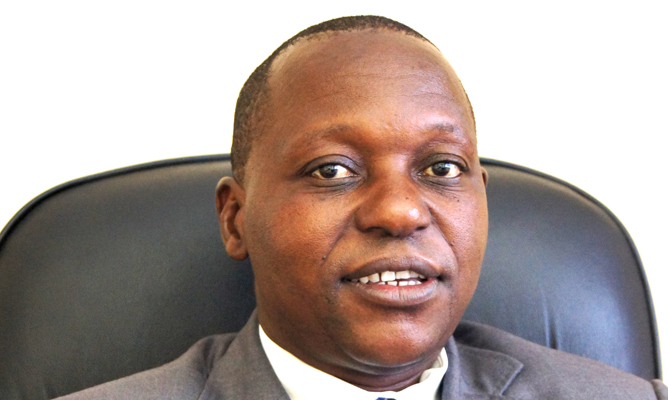
The Millennium Development Goals (MDGs) come to an end this year after 15 years of implementation. They are going to be replaced by the Sustainable Development Goals (SDGs) with a similar time frame of 15 years.
Progress towards achieving the majority of the MDGs has generally been described as patchy given rampant unemployment, poverty, inequality, and decline in social service delivery and environmental degradation that continues to afflict countries such as Zimbabwe.
One of the main reasons why the MDGs have generally failed to realise their targets is the absence of a strong and robust mechanism to monitor implementation of the goals’ programmes and projects. Parliament and civil society, expected to play this oversight function, have not come to the party due to a combination of reasons such as internal capacity problems, lack of integrated approach to development, and a government that has not provided adequate space and information for this oversight take place.
Mandated by the 2012 United Nations Conference on Sustainable Development (Rio+20), the UN Open Working Group on SDGs has produced a proposal for 17 SDGs and 169 targets. The SDGs centre on ending poverty and hunger, improving health, education and gender equality, making cities more sustainable, combating climate change, protecting oceans and forests and promoting peaceful societies.
It would appear that these goals and targets will not undergo significant, if any, changes before their adoption at the Post-2015 Agenda Summit in September this year. Discussions are ongoing on the indicators to measure the goals, and the review and follow-up mechanism. Indications are that the indicators will only be finalised by the first quarter of next year.
Discussions are also ongoing on financing for sustainable development and the so-called “means of implementation” for the SDGs. The Third International Conference on Financing for Development that takes place in Addis Ababa, Ethiopia this July will focus on that.
So what is the role of Parliament in all this? The participation of law-makers (especially those from this part of the world) in the development of the SDGs goals has been very modest. However, civil society participation witnessed an improvement if one compares with the development of the MDGs. Having been largely left out in the development of the SDGs, Parliament must prepare itself to play a more effective oversight role in the implementation of the goals.
People are at the centre of sustainable development. It is for this reason that members of parliament, as representatives of the people, must develop a keen interest in the SDGs.
- Chamisa under fire over US$120K donation
- Mavhunga puts DeMbare into Chibuku quarterfinals
- Pension funds bet on Cabora Bassa oilfields
- Councils defy govt fire tender directive
Keep Reading
As the primary institution of accountability, Parliament has a central role to play in the implementation of SDGs through its law-making, oversight and budgetary functions.
Effective processes, institutions and legal frameworks will need to be created or fine-tuned at the national and global level to support implementation of the SDGs consistently.
Parliament must insist on the development of nationally sustainable development strategies to translate the global goals into national ones, with corresponding Zimbabwe specific targets. Law-makers must be proactive in the development of national development plans aligned to SDGs. Budgets must be linked to the ministries/government departments’ strategic plans, national development plans and SDGs. The goals must be institutionalised at all levels of decision-making, including Parliament. They must be embedded in the manner in which parliamentary committees work. The portfolio committees must be supported to mainstream SDGs in their existing work.

There will be need for a parliamentary coordination mechanism for the effective oversight of SDGs implementation. The MDGs Senate Thematic Committee should be transformed and adequately resourced to play this coordinating function. The Inter-Parliamentary Union studies show that while not every Parliament may need a SDGs specific committee, it may be a good idea to establish such a body provided that it is given a strong coordinating role, and oversight mandate and sufficient resources. To be effective, the IPU suggests that such a committee should be made up of the chairs of other portfolio committees.
The SDGs committee, working with the Budget and Finance Committee, should take the lead in determining full costing of the SDGs at country level, identify financing requirements and corresponding funding sources, take the lead in ensuring that adequate provisions for the SDGs are made in the national budget and to monitor budget expenditure for the SDGs, and evaluate its impact.
There are three key principles behind the SDGs. They are universality, transformative and integration. The transformative principle addresses issues to do with systemic drivers/barriers, equity, mainstreaming economic, social and ecological resilience and recognition of the value of ecosystem services for human well-being. Universality is about collective action by developed and developing countries and policy coherence in sustainable development.
Integration is central to sustainable development and achievement of the SDGs. It is about balancing the three dimensions of sustainable development — environmental, social and economic. It is also about whether or not the goal or target gives consideration to the different timescales over which social, economic and environmental processes occur and must be reconciled. MPs will have to ensure that the national goals or targets take account of potential synergies and trade-offs with other goals and targets.
Lack of integration of goals and targets has been a serious weakness of the MDGs. Ministries and government departments tend to work in silos, a situation that MPs should not allow to prevail under the SDGs era. Successful implementation of SDGs will demand a broader, more inclusive mindset, more domestic consultation and certainly more active civil society and parliamentary engagement.
l John Makamure is the Executive Director of the Southern African Parliamentary Support Trust. Feedback: [email protected]











